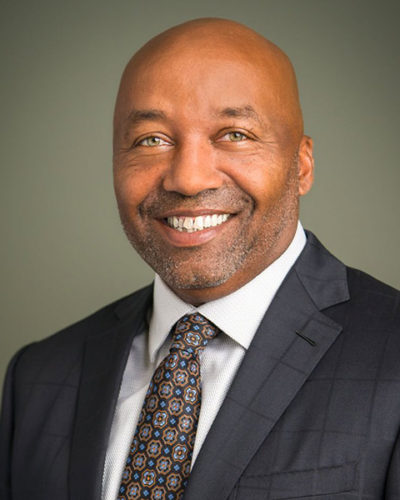
Koniag Government Services occupies a somewhat unique space in the GovCon world. Its parent company Koniag Inc. was formed as part of the Alaska Native Claims Settlement Act of 1971, and the company is owned by more than 3,800 Alaska Native shareholders. KGS exists, in part, to support those communities.
“I’m not Wall Street driven. I don’t have the demands of double digit-profits and margins,” said CEO Kevin Wideman. “We are driven to provide dividends to our native communities, to help them maintain their way of life.”
This, in turn, has a profound operational impact, giving KGS a needed degree of flexibility at time when federal clients are tasked to do more with less.
“A lot of agencies have budgetary constraints,” he said. “They face budget challenges, funding shortfalls ⏤ but their mission never changes, and in fact, it often increases.”
With the flexibility afforded by its unique corporate structure, KGS helps its customers to navigate these challenges.
“We always talk about partnering with your customers, and in a true partnership, their challenges are our challenges: We solve them together,” Wideman said.
With this in mind, KGS and its subsidiaries’ offerings to government range widely, including enterprise solutions, professional services, operations management and health-related services. Effective talent management is key to doing that successfully, Wideman said.
“Whoever has the best and the brightest people, that’s who is going to help you solve problems,” he said. That means the firm has to be highly focused on recruiting and retention.
In the current competitive talent environment, Wideman brings a number of tools to the table. When the pandemic canceled holiday parties, for example, he repurposed those budgets to send gift baskets to employees at home ⏤ a small, yet telling, example of KGS’s dedication to putting people first.
Wideman makes this an ongoing priority, for instance, through an annual review of employee benefits.
“We ask our employees, are you looking for anything else?” he said. “And there are some things: Employees want pet insurance, for example, and they want student loan reimbursement programs.”
In the coming year, the company will be rolling out both of those, “and we review that every year, because people are going to leave you over a bad compensation program,” he said. “You have to keep revisiting that.”
Just as the employees help inform decision-making around benefits, Wideman emphasizes a collaborative approach in many of his processes, especially among his senior leadership team. He said it’s important to build trust so good ideas have a chance to percolate up to the top.
“When your leadership team sits around the table, you don’t just want people who are going to acquiesce to everything that you say,” Wideman said. To get that, “you have to create a culture where people feel comfortable challenging you, without any retribution.”
To build trust, he suggested, it’s important not just to have a safe and open environment, but to also demonstrate people’s input actually drives outcomes.
“If I ask for your ideas, and never implement any of them, that doesn’t work,” he said. “For people to be willing to talk, they need to feel as though they’re being heard.”
To that end, KGS has three CEO councils, through which employees can communicate directly to the executive team.
“We want to hear straight from the employee population,” Wideman said. “What would you like us to know? What could we be doing better?”
With open lines of communication, Wideman keeps recruiting and retention on track. This, in turn, allows him to focus on corporate growth.
“We want to grow to become a billion-dollar organization,” he said. “When I started here four years ago, we were at about $150 million and this year, we’re going to close over $600 million in revenues. We want to continue to grow $100 million year over year until we get to a billion.”
How to make that happen?
“You have to continually challenge yourself to make sure that you’re providing value to your customer,” he said. “Then you can retain your current customer base, your current revenue base and also leverage your success to find new business opportunities.”
In a world where success depends on performance, “our strategy is to maintain a certain level of performance excellence, and then to leverage that to pursue new business opportunities,” Wideman added.
Strategically, Wideman said a certain level of focus is required, to make the most of those opportunities. In a world that tends toward “lowest price, technically acceptable” bids, the company has to be selective about the business it chases.
“We’re never going to be the lowest-price company, because we are never going to stop investing in our employees,” he said. “When you’re trying to grow, everybody wants to pursue everything and nobody wants to say no. But we have to pick and choose where we pursue opportunities.”
On a personal note, Wideman said he appreciates working in support of the government mission, while also supporting the Alaska Native communities.
Each year, the company sends a group of employees to Alaska to work on a service project that directly impacts the community. It demonstrates KGS’ commitment to its shareholders and reinforces the KGS mission to employees in a way just talking about it never could, Wideman said.
“It’s an unforgettable experience,” he added. “We are solving problems for our government, for our country, and we also are providing for disadvantaged communities. We are helping them to maintain their way of life.”

